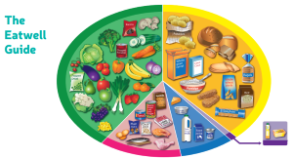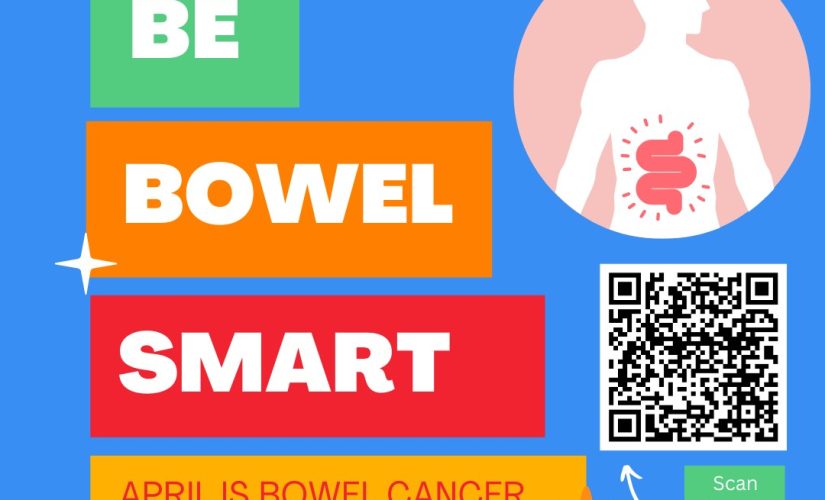April is recognised nationally as Bowel Cancer Awareness Month. Bowel cancer is the fourth most common cancer in the UK and the second biggest cancer killer.
 What is bowel cancer?
What is bowel cancer?
- Bowel cancer is also called colorectal cancer. It affects the large bowel, which is made up of the colon and rectum.
- Most bowel cancers develop from pre-cancerous growths, called polyps. But not all polyps develop into cancer. If your doctor finds any polyps, they can be removed to prevent them becoming cancerous.
- Cancer cells may stay in the bowel or they might spread to other parts of the body, like the liver or lungs.
In last week’s UK News article we shared some resources which you can find here with lots more information about Bowel Cancer, who it affects, what are the symptoms, what to do if you notice any symptoms and about screening in the UK.
This week we are sharing some simple steps for good bowel health. This is important as these small changes will help your digestive system to work well and could reduce your risk of bowel cancer.
The bowel is part of your digestive system, which turns food and liquid into energy that your body can use. Eating healthily helps your digestive system work well and can reduce your risk of bowel cancer.
The Government’s Eat well Guide shows you how much of your daily diet should come from each food group. This includes everything you eat during the day, including snacks.

To stay healthy, we should:
- Eat at least five portions of vegetables and fruit every day.
- Choose wholegrain varieties of bread, rice and pasta.
- Enjoy more pulses, such as beans and lentils.
- Eat some fish, chicken, eggs and tofu but limit red meat and avoid processed meat.
- Eat some milk and other dairy foods but choose those without added sugar.
- Choose unsaturated oils and spreads and use in small amounts.
- Limit food and drinks high in fat or sugar such as sweets, cakes, crisps and fizzy drinks. They are not needed for a healthy diet and should only be eaten in small amounts.
Fibre is an important part of a healthy diet and helps reduce your risk of bowel cancer. Fibre keeps everything moving easily through your digestive system. Try increasing the amount of fibre in your diet gradually. Not everyone will be able to tolerate a high fibre diet.
As well as containing fibre, vegetables and fruit may also help to protect against bowel cancer because they contain antioxidants, which are substances that help to delay or prevent cell damage. We all know eating five portions of vegetables and fruit a day forms part of a healthy, balanced diet but do you know how to get your 5 A Day?
We need protein in our diet to help our body repair cells and make new ones. There are many good sources of protein shown in the Eatwell Guide. These include chicken, fish, peas, beans, tofu and lentils. But there is strong evidence that eating a lot of red and processed meat increases your risk of bowel cancer.
Alcohol is linked to seven types of cancer including bowel cancer. Alcohol can damage cells, making them more likely to become cancerous. For cancer prevention, it’s best not to drink alcohol at all.
People who are more physically active have a lower risk of bowel cancer. Being active can help you keep to a healthy body weight and helps to make you feel good.
Being overweight or obese and carrying a lot of weight around your waist can increase your risk of bowel cancer. Measuring your BMI (Body Mass Index) is a simple way of finding out if you’re a healthy weight for your height.
For full details on all of the above – check out the Bowel Cancer UK Guide to Good Bowel Health here.
